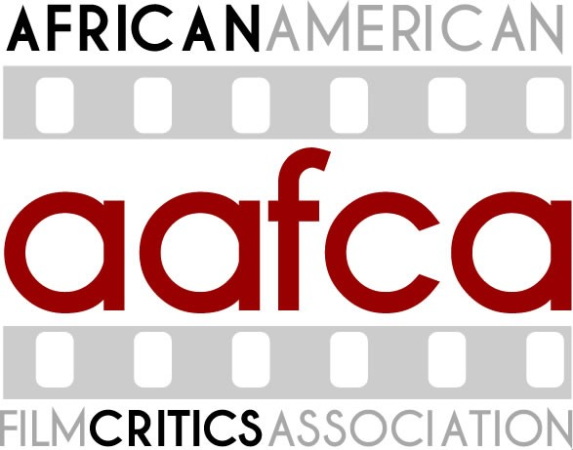On February 6, 2019, the African American Film Critics Association will celebrate its 10th annual awards ceremony, honoring excellence in film. Hosted by comedic actress Tichina Arnold, the AAFCA Awards will honor juggernaut Black Panther as the Film of the Year, as well as Quincy Jones and a host of other talented industry folks exemplifying excellence in their craft.
Every year, Black Hollywood eagerly attends the award ceremony, which has honored Ava DuVernay, Barry Jenkins, Jordan Peele and so many more, at a time when Hollywood was overlooking their talent. And members of the AAFCA have found a support network and coveted resources that Black journalists and particularly film critics can have difficulty acquiring on their own.
Behind the past decade of the AAFCA Awards and the past 16 years of the Black Hollywood institution that is AAFCA, is Gil Robertson, the creator, co-founder and CEO. An institution unto himself, Robertson has helped to develop the careers of not only Black journalists, but Black executives, and filmmakers in Hollywood. An AAFCA member myself, I attended the 2019 Sundance Film Festival for the first time thanks to one phone call from Robertson.

Still, he tells Shadow And Act, Robertson had no initial interest in what he called the “low hanging fruit” of being in the entertainment industry. The South-Central L.A. native instead wanted to be an author.
“I thought the best way to do that was to get my name out there,” he said. “I figured I would write a few articles about people who were in front of me and that would allow me to get the leverage to get a book deal.”
But the ambitious writer was soon able to do both and has now written five books. As his entertainment journalism career grew, so did his awareness of the treatment of Black journalists in the industry.
Often shut out of the press junkets (even the ones heavily featuring Black talent and supposedly marketed towards Black audiences) and skipped over on red carpets, Black journalists and the Black outlets they can represent, have a much harder time getting access to the spaces and opportunities they need to advance their skills and their publications.
Ever the activist and organizer, Robertson had the idea to create an organization that would support these writers in their craft. With the help of his co-founder Shawn Edwards, Robertson’s idea became reality.
“For me, it was very important to create a window by which new, younger Black journalists doing film criticism could do so without having to deal with all of the hurdles and obstacles that I’d encountered,” Robertson said of his motivation to found the organization. “I knew that all of the challenges that people could potentially face would probably deter or hinder them from entering into the media profession and I wanted to do something in some small way to contribute to more growth more voices in that pipeline.”
Sixteen years later, AAFCA is now the “premier body of Black film critics in the world,” thanks to his vision. Just six years after its launch, the organization morphed from a group of Black journalists gathering to assemble their list of best films and talents of the year into an organization that puts on a highly anticipated annual awards show.
In 2009, Robertson received by chance an offer of financial support to do a live event from a friend who was working on promotion for a film. “She said, ‘Hey, I can give you $5,000, and if you do [a live event], we can incorporate messages about the movie I’m working.’”
Robertson agreed, but was only thinking AAFCA might take over an upscale bar, hand out a few awards and, “be home before the 11:00 news.” But a man who ran a local theater gave him a call and offered to let him use his theater to hold the event. A full-fledged awards show was born.
Just this past weekend at the AAFCA Special Achievement Awards Luncheon–the weekend event proceeding the Awards Dinner–Robertson tearfully recalled the many friends in the room, including DuVernay, who wouldn’t let him quit producing the awards show every year. Some, he mentioned at the podium during his speech, wrote $500 checks so that the organization could continue its annual tradition of awarding the best in Hollywood every year.

Now, the AAFCA and its annual AAFCA Awards have solidified their place in Black Hollywood as a refuge. They’ve slipped into the shoes of the former Black Oscars dinner that used to take place at the Beverly Wilshire, and have allowed Black independent creators and journalists a safe and inviting place to be celebrated.
With the ground-breaking and necessary work that AAFCA has done on behalf of Black journalists and creatives in Hollywood, the game-changer knows there is still more left to do. His message to Black creatives is not to try and conform to the Hollywood machine, but instead make Hollywood conform to us.
“The most successful people in this industry that are Black have almost always operated outside of the industry,” he noted. “Gordon Parks, Spike Lee and Robert Townsend; Will Packer and Ava [DuVernay]; all of them are independent artists doing their own thing and Hollywood found out and wanted to be a part of their game,” he said.
“Charles King, Ava: they may have deals at various studios, but they still operate independently,” Robertson said. “We must become more entrepreneurial in our thinking.”
That, he said, is how you change the game.

